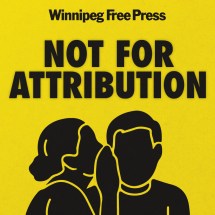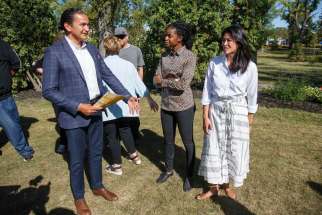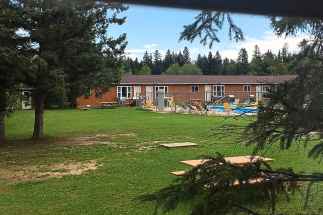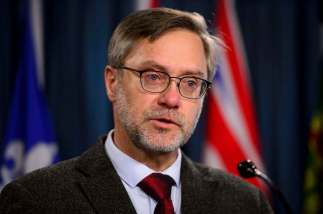Canada must reject jihadist’s dad’s claim
Read this article for free:
or
Already have an account? Log in here »
To continue reading, please subscribe:
Monthly Digital Subscription
$0 for the first 4 weeks*
- Enjoy unlimited reading on winnipegfreepress.com
- Read the E-Edition, our digital replica newspaper
- Access News Break, our award-winning app
- Play interactive puzzles
*No charge for 4 weeks then price increases to the regular rate of $19.00 plus GST every four weeks. Offer available to new and qualified returning subscribers only. Cancel any time.
Monthly Digital Subscription
$4.75/week*
- Enjoy unlimited reading on winnipegfreepress.com
- Read the E-Edition, our digital replica newspaper
- Access News Break, our award-winning app
- Play interactive puzzles
*Billed as $19 plus GST every four weeks. Cancel any time.
To continue reading, please subscribe:
Add Free Press access to your Brandon Sun subscription for only an additional
$1 for the first 4 weeks*
*Your next subscription payment will increase by $1.00 and you will be charged $16.99 plus GST for four weeks. After four weeks, your payment will increase to $23.99 plus GST every four weeks.
Read unlimited articles for free today:
or
Already have an account? Log in here »
Hey there, time traveller!
This article was published 19/08/2019 (2304 days ago), so information in it may no longer be current.
John Letts, an organic farmer in Oxford, England, wants someone — anyone — to go and rescue his 23-year-old son Jack from the Kurdish armed forces who detained him when he fled two years ago from Raqqa, a Syrian city that was held at the time by the jihadist army known as the Islamic State (IS) group. Jack Letts, voluble in press and television interviews, became a celebrity in Britain under the media-given moniker Jihadi Jack.
The British government washed its hands of the Jack Letts case a month ago by quietly cancelling the British citizenship of the young Islamic convert.
Now the organic farmer and his wife, a former book editor, are turning to the Canadian government on the grounds that young Jack inherited his father’s Canadian citizenship.
Public Safety Minister Ralph Goodale, learning of the U.K. move on Sunday, issued a statement saying Canada was disappointed that the United Kingdom has taken this unilateral action to offload its responsibilities.
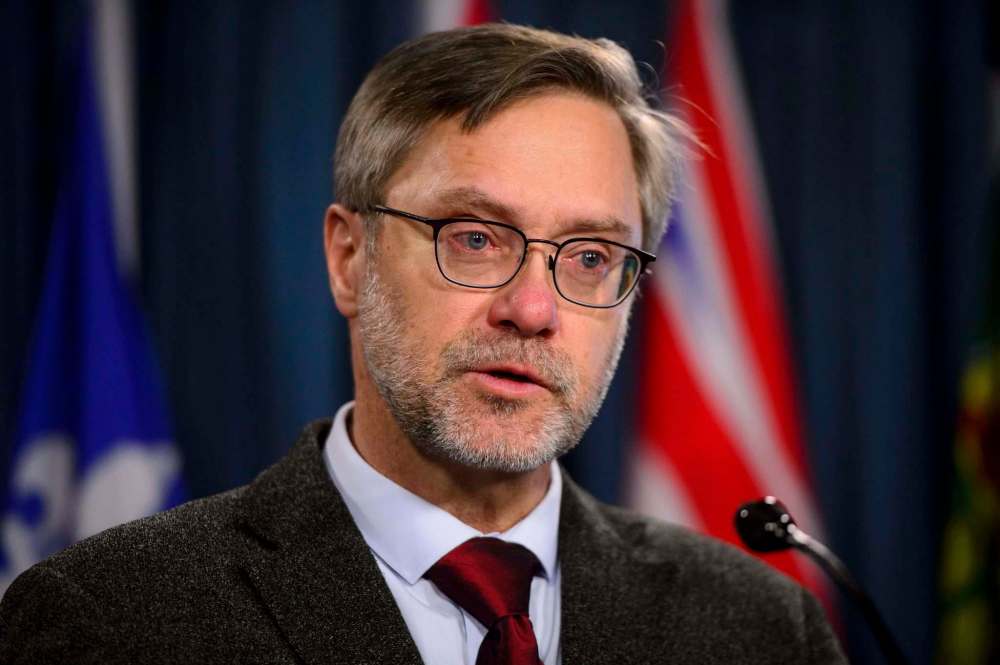
The parents’ claim on Canada is weak. They left Canada more than 20 years ago and raised their family in England.
Their son, the one who went to Syria to hang out with the jihadists, has no connection to Canada beyond his father’s passport. Nevertheless, they want Canadian authorities to enter the war zone where their son is held — and where they themselves wisely have not ventured — to find and extract him.
What exactly was Jack Letts up to in Iraq and Syria? Was he waging war with IS, or was he just visiting? It’s hard to know for sure, but he went to the region in 2014 and only left IS territory three years later to escape the siege of Raqqa.
The parents tried to send money to their son in 2015. They were convicted in a British court for financing a terrorist group. At their trial, the testimony showed members of their son’s mosque had warned them their son had been radicalized, but they bought him an air ticket to Jordan just the same. Now they want the Canadian government to go and get him back.
But even if Canada could get him back, what would we do with him then? He can’t go back to the U.K., where they have cancelled his citizenship. His parents think so ill of this country, they left it before Jack’s birth 23 years ago. These people have made their choices, and those choices do not include Canada.
A Canadian passport should mean something. It should mean that Canada will help and protect the passport holder. It should also mean that the holder has a real attachment to Canada and a real commitment to this country.
The parents cannot be relied on to straighten out their son’s thinking. They financed his travel to the Middle East in the first place. They ignored advice from their son’s worship companions and the police.
A Canadian passport should mean something. It should mean that Canada will help and protect the passport holder. It should also mean that the holder has a real attachment to Canada and a real commitment to this country.
Because of our colonial history, Canadian passports have fallen into the hands of people who use Canada merely as a flag of convenience. Canada is entitled to look beyond the formal passport document and weigh out our efforts in relation to the real circumstances of the case. The circumstances in the Jack Letts case argue for little effort.





